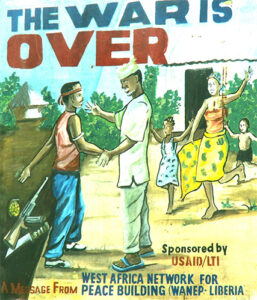Why RWCT
Solving Real Problems
Educators since John Dewey and Célestin Freinet have stressed that students best learn and retain information that they can use, that they can relate to life by applying lessons to their environments and solving real problems.
In modern global economies, the most successful workers are those who can read and listen carefully, think critically, communicate effectively, and work cooperatively.
In areas of the world that have suffered from conflicts, the same skills are valued for helping children recover their equilibrium, and to help young people avoid conflict to begin with.


Active Learning And Critical Thinking In Schools
RWCT teaching strategies develop the abilities of students at all levels to read and listen with understanding, reason with information, and apply their knowledge in solving problems.
Strategies show teachers how to hold discussions in which everyone participates and is challenged to think deeply.
They use writing as a way of reflecting on what they learn and to communicate ideas to different audiences.
Cooperative learning strategies engage all students all the time, and teach skills of leadership, communication and teamwork, as well as a disposition to respect differences and work with diverse others.

Critical Thinking, Communication, And Cooperative Skills In The Workplace.
Adults’ quality of life outcomes are linked to their skills in reading, critical thinking, and communication, as the Program for the International Assessment of Adult Competencies conducted by the OECD show.
Even in countries with advanced economies, the growing complexity of the workplace is leaving as many as half of adults behind for lack of those skills.
Careful reading, critical thinking, communication, interpersonal understanding, and cooperation can be taught in primary school and continue in secondary school and university.

Critical Thinking In Civic Life
The need is as great now as ever for people to develop the will and the means to listen to and seek to understand those with whom they might disagree, weigh evidence carefully, express their own views clearly and logically, and reach warranted conclusions.
Schools have the potential to nurture those attitudes and skills from the earliest grades as part of general instruction, using RWCT methods.

Critical Thinking In Development Work
RWCT projects in Majority World countries teach basic literacy and help children transition to the language of instruction, and also emphasize comprehension and critical thinking via reading, listening, discussion, and collaborative learning.
For adolescents in and out of school, many development agencies are promoting “21st Century Skills” of critical thinking, problem-solving, communication, cooperation, and entrepreneurship. These skills have long been part of RWCT training.
Critical Thinking And Peace Building
For children living in areas beset by war and discord, schools can be safe havens where they learn to reclaim a sense of normalcy and agency, and to look out for themselves and each other.
As the International Rescue Committee has noted, teaching the skills of critical thinking and cooperation, and encouraging collaborative learning where children can rely on each other are key ingredients of “healing classrooms.”

